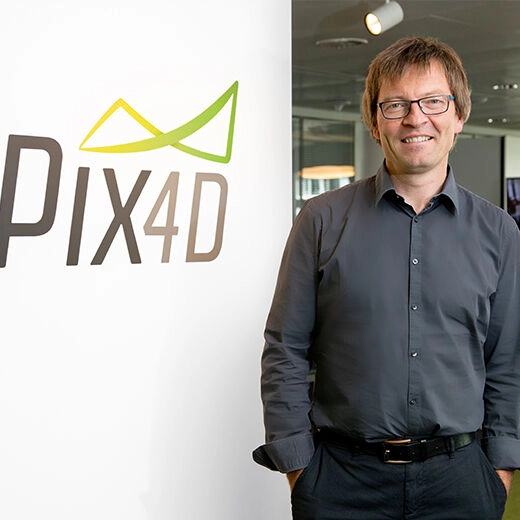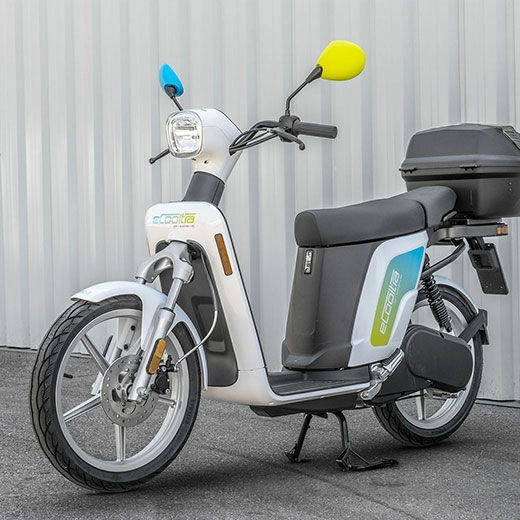From a tool no one really likes to Lokalise that everyone loves
Rydoo is a travel and expense management platform that helps high-growth companies significantly reduce the time spent on expense management. In 2017, the company – then called Xpenditure – was bought and merged with Sodexo, the catering, facilities, and employee benefits management solution.
Today, Rydoo is one of the top travel and expense management software providers due to its high customer satisfaction scores and significant market presence. It operates in 60 different countries and is available in 16 languages.

Before Lokalise, Rydoo used a translation management system (TMS) that they had built in-house. It was built very quickly and performed basic functions but was far from perfect. ''Our tool was pretty slow, it didn't give translators any visual context, and overall, it just wasn't very user-friendly. It was an in-house solution that nobody really liked,'' admits Kasper Supre, Product Manager at Rydoo.
What didn't make the work any easier was that after merging with Sodexo, there were different companies – and different translation workflows – that now had to be merged in one unit. ''When we were then bought by Sodexo, that happened together with another, travel management company. They were familiar with different translations but after the merge, we had to make sure that we tell one consistent story. For that, we needed one consistent translation base and make sure that we both use the same wording and tone of voice,'' adds Kasper.
After switching to Lokalise the Rydoo team has added four new languages and, according to Kasper, the localization process has become much more efficient.
''Now that we use Lokalise, managing translations has become much easier. I have a better overview of translations, and I can provide much more contextual information for translators. Because of that, there are fewer errors to fix after the translations are released.''
Kasper reveals that they're still in the process of moving all their translations from their old system to Lokalise. Nevertheless, their goal is to soon have just one system with one person managing it.
Lokalise helps ensure perfect translations before they're released
Currently, Rydoo's localization workflow looks like this:
First, developers push translation files from the Rydoo website or app to Lokalise. As the files are imported to Lokalise, Kasper receives a notification and, before assigning tasks to translators, he reviews the copy to make sure that it's easily read and clearly written, leaving no place for misinterpretation. Then, he creates tasks and sends them to translators.
Rydoo collaborates with 16 freelance translators, many of whom are the company's long-term partners. When Kasper assigns them tasks, they have three days to deliver the translations.
''Translators are encouraged to ask as many questions as they like using the Comments feature – it's easier to clarify things right away than after the translations have been released. And other translators can also see the answers, so they also benefit from it.''
When translations are done, Kasper once again quickly scans through them and makes sure that there's nothing missing. ''I use the Quality Assistance (QA) feature, which significantly reduces the time spent on translations. I just quickly skim through it and see if I can spot any trailing spaces and spelling mistakes, which are marked by the QA flag or red signs,'' he explains. And once this is done, he notifies developers to release the translations.
Key features used:
- Screenshots
- Glossary
- Translation history
- Machine translation
- Comments
- QA

Kasper lists a bunch of Lokalise features without which he can no longer imagine his workday. His favorite ones are those that provide additional context to translators, as that means fewer mistakes and corrections.
''Our translators are working on many different projects, so there are days when they have to work on translations that are completely new to them and don't make a lot of sense. Adding product screenshots gives them context and helps them choose better translations. And, as mentioned before, more accurate translations from the start means less work for me,'' Kasper tells us.
Other features Kasper recommends are glossary and translation history, which help ensure translation consistency, and machine translation, which significantly increase speed.
Lokalise has also improved the collaboration, both between the team members and between the team and the freelance translators. ''I can create a task and send it to the translators with a filter on it, so that they know exactly what to translate. I have a clear overview of tasks – I can see which one is open, which one is done, etc. And the entire team also has a clear overview of translations,'' Kasper notes.
''I like that everything – translations and project management – happens within Lokalise. I don't have to check my emails for updates, reply three times to the same question, etc. I can just have a look on Lokalise, and see everything I need to see. That's just super handy.''
Rydoo's team of developers is also working on a new API functionality, which will become a central location of managing all translations. ''The goal is to make a scalable solution to manage translations that are coming from many different teams. The new API functionality will keep everything centralized,'' Kasper explains.
Finally, asked what he would say to other companies considering using Lokalise, Kasper answers: ''I would say that the implementation is easy. It's a really helpful tool to provide enough context for translators to help them deliver the best translations. It makes it super easy to follow up with translations and gives a clear overview. That reduces the time you need to spend on managing the translations.''
Data:
- 16 languages
- Used across 60 countries
- 900K+ users
- 10 offices worldwide
- App average adoption rate of 93% within the first month
Read more case studies

How Pix4D saves dozens of hours on multi-lingual releases

Providing mobility solutions used in Europe's 7 biggest cities in 5 languages
Case studies

Behind the scenes of localization with one of Europe’s leading digital health providers
Read more Case studies
Support
Company
Localization workflow for your web and mobile apps, games and digital content.
©2017-2026
All Rights Reserved.


